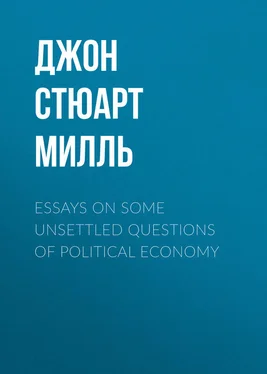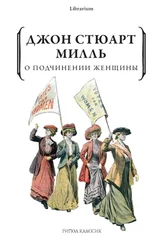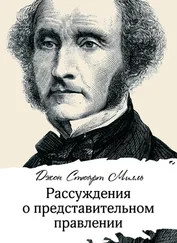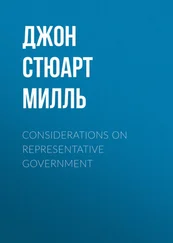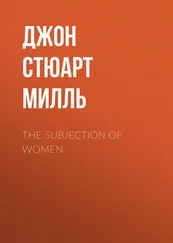Джон Милль - Essays on some unsettled Questions of Political Economy
Здесь есть возможность читать онлайн «Джон Милль - Essays on some unsettled Questions of Political Economy» — ознакомительный отрывок электронной книги совершенно бесплатно, а после прочтения отрывка купить полную версию. В некоторых случаях можно слушать аудио, скачать через торрент в формате fb2 и присутствует краткое содержание. Жанр: Философия, literature_19, foreign_antique, foreign_prose, на английском языке. Описание произведения, (предисловие) а так же отзывы посетителей доступны на портале библиотеки ЛибКат.
- Название:Essays on some unsettled Questions of Political Economy
- Автор:
- Жанр:
- Год:неизвестен
- ISBN:нет данных
- Рейтинг книги:4 / 5. Голосов: 1
-
Избранное:Добавить в избранное
- Отзывы:
-
Ваша оценка:
- 80
- 1
- 2
- 3
- 4
- 5
Essays on some unsettled Questions of Political Economy: краткое содержание, описание и аннотация
Предлагаем к чтению аннотацию, описание, краткое содержание или предисловие (зависит от того, что написал сам автор книги «Essays on some unsettled Questions of Political Economy»). Если вы не нашли необходимую информацию о книге — напишите в комментариях, мы постараемся отыскать её.
Essays on some unsettled Questions of Political Economy — читать онлайн ознакомительный отрывок
Ниже представлен текст книги, разбитый по страницам. Система сохранения места последней прочитанной страницы, позволяет с удобством читать онлайн бесплатно книгу «Essays on some unsettled Questions of Political Economy», без необходимости каждый раз заново искать на чём Вы остановились. Поставьте закладку, и сможете в любой момент перейти на страницу, на которой закончили чтение.
Интервал:
Закладка:
As much as is really true of the great returns alleged to have been made to capital during the last war, must have arisen from a similar cause. Our exclusive command of the sea excluded from the market all by whom we should have been undersold.
The adoption by France, Russia, the Netherlands, and the United States, of a more severely restrictive commercial policy, subsequently to 1815, has done great injury undoubtedly to those countries; for the duties which they have established are intended to be, and really are, of the class termed protecting ; that is to say, such as force the production of commodities by more costly processes at home, instead of suffering them to be imported from abroad. But these duties, though chiefly injurious to the countries imposing them, have also been highly injurious to England. By diminishing her exportation, or preventing it from increasing as it would otherwise have done, they have kept up the prices of all imported commodities in England, above what those prices would have fallen to if trade had been left free.
By another obvious application of the same reasoning, it will be seen, that there is a real foundation for the notion, that a country may be benefited by receiving from another country the concession of what used to be termed commercial advantages, or by restraining its colonies from purchasing goods of any country except itself. In the figured illustration last used (p. 34) [not available, M.D.], it is evident, that if England had been bound by a treaty with Germany to buy linen exclusively from her, Germany would have retained the trade which we supposed her to lose, and would have continued to purchase cloth at a comparatively cheap rate from England, instead of producing it by a more costly process at home. Suppose that England had been a colony of Germany, and we see that by compelling colonies to deal at her shop, she may obtain a real advantage, though of a nature which we may hazard the assertion that the founders of our colonial policy little dreamt of.
Such an advantage, however, being gained at the expense of another country, is, at the least, simply equivalent to a tax, or tribute. Now, if a country has just grounds, or deems superiority of power a sufficient ground, for exacting a tribute from another country, the most direct mode is the best. First, because it is the most intelligible, and has least of trick or disguise. Secondly, because it allows the people of the country paying the tribute, to raise the money in whatever way they consider least oppressive to themselves. Thirdly, because the indirect mode of taxing a country, by restrictions on its commerce, disturbs the distribution of industry most advantageous to the world at large, and occasions a greater loss to the restricted country, and to the other countries with which that country would have traded, than gain to the country in whose favour the restrictions are imposed. And lastly, because a country never could obtain such privileges from an independent nation, and has seldom been so undisguised an oppressor as to demand them even from its colonies, without subjecting itself to restrictions in some degree equivalent, for the benefit of those whom it has thus taxed. Each country, therefore, usually pays tribute to the other; and to produce this fruitless reciprocity of exaction, the industry and trade of both countries are diverted from the most advantageous channels, and the return to the labour and capital of both is diminished, in pure loss.
9. The same principles which have led to the above conclusions, also suggest a remark of some importance with respect to the probable effect of a change from a restricted to a comparatively free trade.
There is no doubt that our prohibiting the importation of a particular article, which, but for the prohibition, would have been imported, enables us to obtain our other imports at smaller cost. The article for which we have the greatest demand, and for which our demand is most increased by cheapness, is that which we should naturally import preferably to any other; now of this article we should import the quantity necessary to pay for our exports, on terms of interchange less advantageous to us than in the case of any other commodity. If our legislature prohibits this commodity, the other country will be obliged to offer any other article on easier terms, in order to force a sufficient demand for it to be an equivalent to what she purchases from us.
The steps of the process, money being used, would be these: – We prohibit the importation of linen. The exportation of cloth continues, but is paid for in money. Our prices rise, those in Germany fall, until silk, or some other article, can be imported from Germany cheaper than it can be produced at home, and in sufficient abundance to balance the export of cloth. Thus by sacrificing the cheapness of one commodity, we gain the cheapness of another: but we sacrifice a greater cheapness to gain a less, and we sacrifice cheapness in the article which we most want, and would import by preference, while our compensation is cheapness in an article which we either could produce more advantageously at home, or which we have so little desire for, that it requires a species of bounty on the article to create a demand.
Конец ознакомительного фрагмента.
Текст предоставлен ООО «ЛитРес».
Прочитайте эту книгу целиком, купив полную легальную версию на ЛитРес.
Безопасно оплатить книгу можно банковской картой Visa, MasterCard, Maestro, со счета мобильного телефона, с платежного терминала, в салоне МТС или Связной, через PayPal, WebMoney, Яндекс.Деньги, QIWI Кошелек, бонусными картами или другим удобным Вам способом.
1
Elements of Political Economy, by James Mill, Esq., 3rd edit., pp. 120-1.
2
The figures used are of course arbitrary, having no reference to any existing prices.
3
We have not deemed it necessary to enter minutely into all the circumstances which might modify the results mentioned in the text. For example, let us revert to the first case, that in which the demand for cloth in Germany is so little affected by the rise of price in consequence of the tax, that the quantity bought exceeds in pecuniary value what it was before. As the German consumers lay out more money in cloth, they have less to lay out in other things; other money prices will fall; among the rest that of linen; and this may so increase the demand for linen in England as to restore the equilibrium of exports and imports without any passage of money. But England's treasury will still gain from Germany the whole of the tax, and the English people will buy their linen cheaper besides. Again, in the opposite case, where the tax so diminishes the demand, that a smaller pecuniary value is required than before. The German consumers have, therefore, more to expend in other things; these, and among the rest linen, will rise; and this may so diminish the demand for linen in England, as to restore the equilibrium without the transmission of money. But the effect, as respects the division of the advantage, is still as stated in the text.
4
The world at large, sellers and buyers taken together, is always a gainer by underselling. If, in the case supposed, England were compelled by a commercial treaty to exclude the linen of Flanders from her market, the total wealth of the world, if affected at all, would be diminished.
Читать дальшеИнтервал:
Закладка:
Похожие книги на «Essays on some unsettled Questions of Political Economy»
Представляем Вашему вниманию похожие книги на «Essays on some unsettled Questions of Political Economy» списком для выбора. Мы отобрали схожую по названию и смыслу литературу в надежде предоставить читателям больше вариантов отыскать новые, интересные, ещё непрочитанные произведения.
Обсуждение, отзывы о книге «Essays on some unsettled Questions of Political Economy» и просто собственные мнения читателей. Оставьте ваши комментарии, напишите, что Вы думаете о произведении, его смысле или главных героях. Укажите что конкретно понравилось, а что нет, и почему Вы так считаете.
